Arnold Promise Witch Hazel – Single Trunk Tree Form – 7 Gallon Pot
$289.97 Original price was: $289.97.$95.99Current price is: $95.99.
SKU: D2LSC 279323771 Categories: FRAGRANT PLANTS, Fragrant Shrubs
- Protect Your Information, Shop with Safe Payments
- Friendly, efficient service, always online.
- Secure Shopping with Safe Payments
- Buy with confidence, backed by quality.

Arnold Promise Witch Hazel – Single Trunk Tree Form
Hamamelis x intermedia ‘Arnold Promise’
Plant Details
USDA Plant Hardiness Zones: 5a-8b Find Your Zone
Plant Type: Deciduous Flowering Shrub or Small Tree
Height at Maturity: 12-15′
Width at Maturity: 12-15′
Spacing: 8-10′ for solid hedges; 18’+ for space between plants
Growth Habit / Form: Upright, Broad, Vase-Shaped
Growth Rate: Fast
Flower Color: Bright Clear Yellow with Red calyxes
Flower Size: 1.5″
Flowering Period: Late Winter to Early Spring
Flower Type: Fringe
Fragrant Flowers: Yes
Foliage Color: Green in spring; Bright Yellow, Red & Orange shades
Fragrant Foliage: No
Berries: No
Berry Color: NA
Sun Needs: Full Sun or Mostly Sun, Morning Sun with Dappled or Afternoon Shade, Morning Shade with Afternoon Sun
Water Needs: Average
Soil Type: Clay (amend heavy clay to ensure good drainage), Loam, Sandy, Silt
Soil Moisture / Drainage: Moist But Well-Drained
Soil pH: 5.0 – 7.5 (Acid to Moderately Alkaline)
Maintenance / Care: Very Low
Attracts: Visual Attention
Resistances: Deer, Disease, Humidity, Insects
Description
This is the magnificent single-trunk tree form version of the ‘Arnold Promise’ Witch Hazel, which heralds the arrival of spring. It may be the first flowering tree to bloom in your gardens, along with Flowering Quince, Forsythia, and a handful of others. Truly spectacular in bloom, in late winter to early spring, sometimes even when there’s snow on the ground, LOADS of fragrant, longer-lasting, bright yellow fringe flowers adorn every branch and stem on the tree. Following the bloom, attractive bright green oval-shaped leaves emerge that darken as the season progresses, turning to brilliant shades of yellow, red, and orange with cooler temperatures in fall. ‘Arnold Promise’ received the prestigious Award of Garden Merit from the Royal Horticulture Society, and the honor is well-deserved!
Discovered at Arnold Arboretum at Harvard University, the story of ‘Arnold Promise’ Witch Hazel begins in 1928, when Arboretum propagator William Judd collected and grew seed harvested from an Arboretum accession of Chinese witch hazel (H. mollis), a plant acquired from plant explorer Ernest Henry Wilson’s 1907-09 expedition for the Arboretum to China and Tibet. Nearly two decades later, famed Arboretum taxonomist Alfred Rehder deduced that plants propagated from its seed were likely hybrids, as they exhibited intermediate characteristics of the Chinese witch hazel and its neighbor in the Arboretum landscape, the Japanese witch hazel (H. japonica). With this in mind, he selected an appropriate scientific name for the new plants: H. × intermedia. By the late 1950s, staff observed that one of the hybrid offspring consistently bloomed with larger flowers over a longer period than the others. This individual was given the cultivar name ‘Arnold Promise.’
Landscape & Garden Uses
Arnold Promise Witch Hazel Tree can grow 12 to 15 feet tall and equally as wide. It is ideal for use as a focal point specimen in landscape borders and home foundation plantings. Two can be used to frame an entrance. It is a fine addition to winter gardens, fragrance gardens, yellow-theme gardens, and cottage gardens.
Suggested Spacing: 18 feet or more apart for space between plants
Growing Preferences
Arnold Promise Witch hazel is very easy to grow in most well-drained but moist soils in full sun to part shade. It prefers a moist acidic soil rich in organic matter but also grows well in heavy clay soils. It flowers best in full sun. Little pruning is required.
Helpful Articles
Plant and care for as you would Loropetalum shrubs.
How To Plant A Loropetalum Shrub
How To Fertilize & Water A Loropetalum Shrub
Plant Long & Prosper!
Meet The Wilson Brothers & Staff
Questions? Contact Us
Be the first to review “Arnold Promise Witch Hazel – Single Trunk Tree Form – 7 Gallon Pot” Cancel reply
Related products
Sale!
FRAGRANT PLANTS
Sale!
FRAGRANT PLANTS
Sale!
FRAGRANT PLANTS
Sale!
Sale!
FRAGRANT PLANTS
Sale!
FRAGRANT PLANTS
Sale!
Sale!
FRAGRANT PLANTS
Simply Scentsational Sweetshrub (Calycanthus ) – 2 Gallon Pot

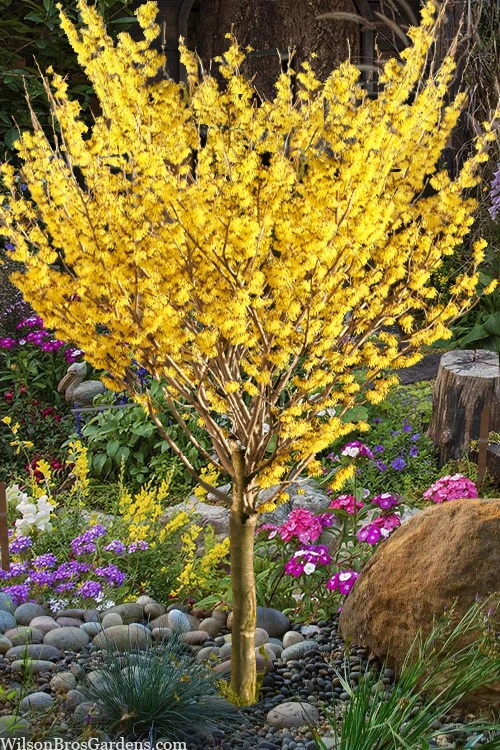


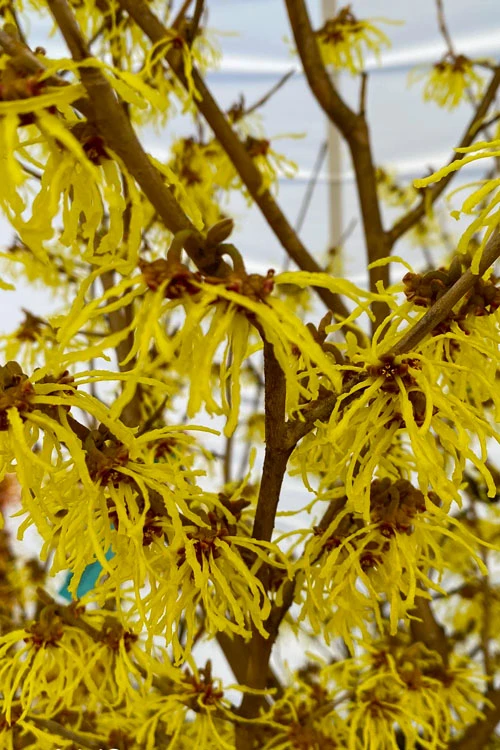
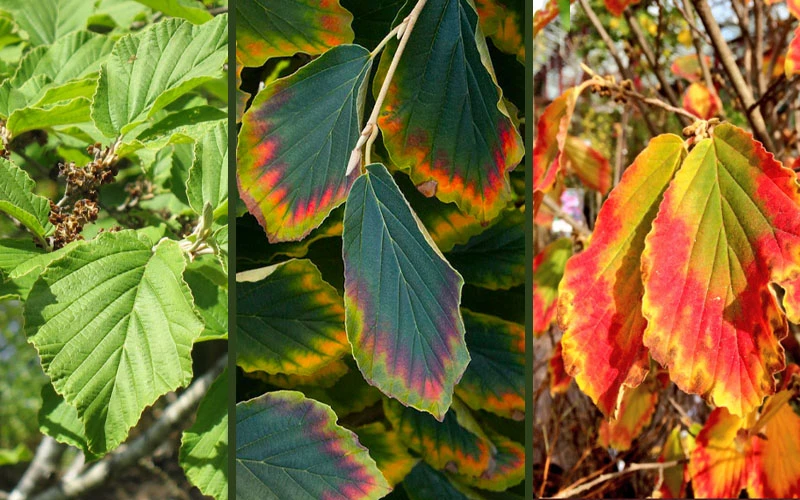


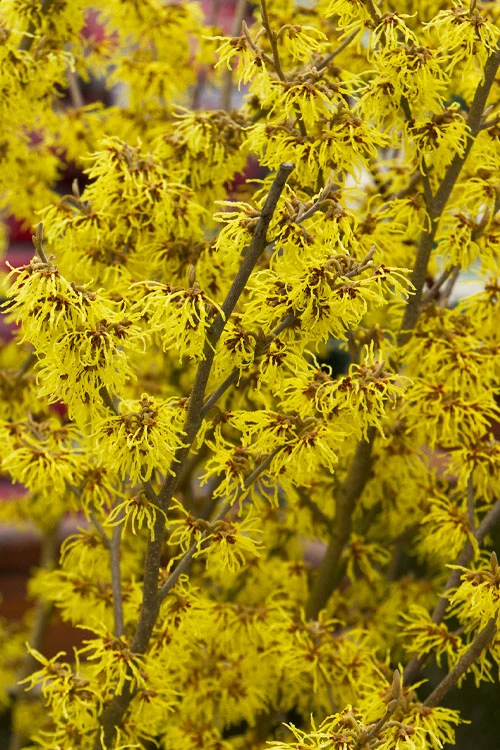
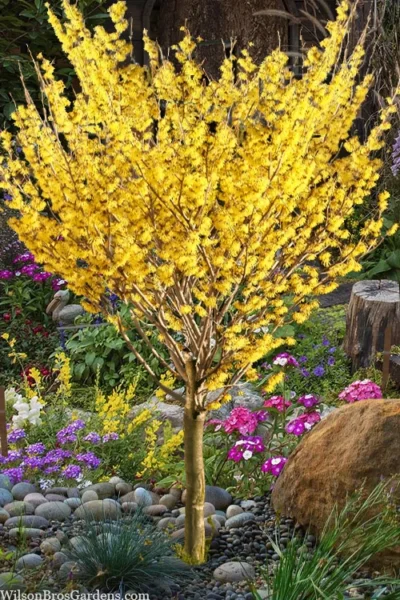


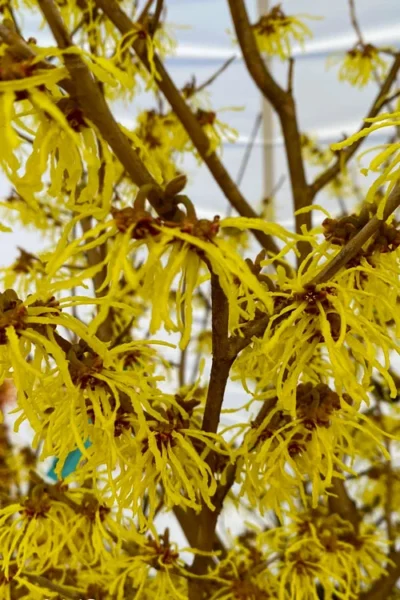
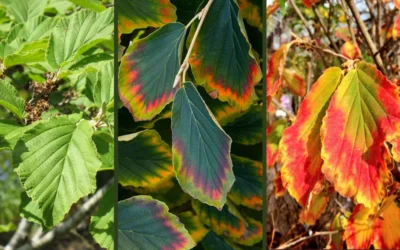
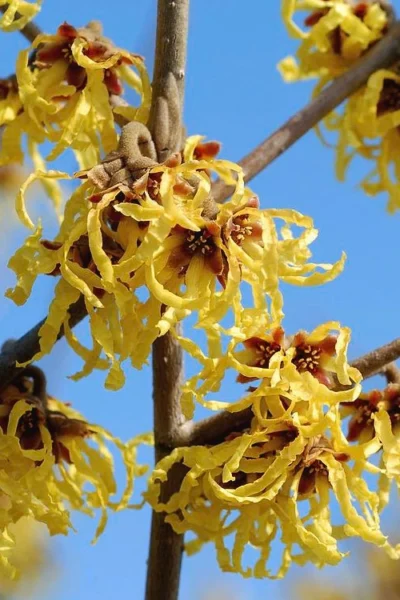
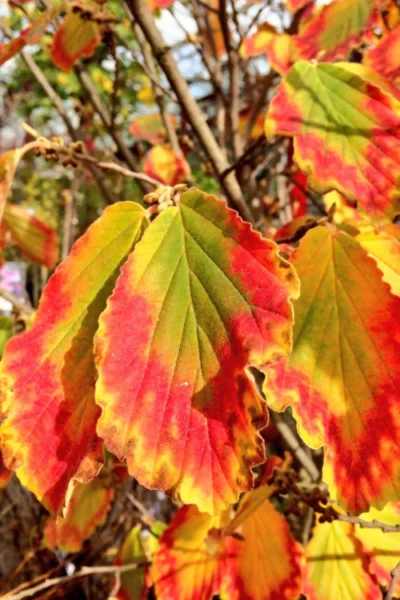
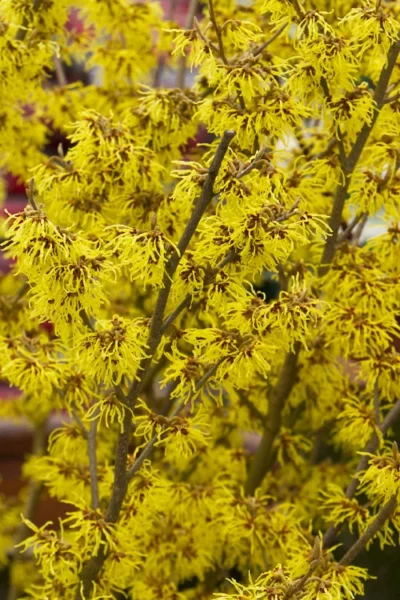


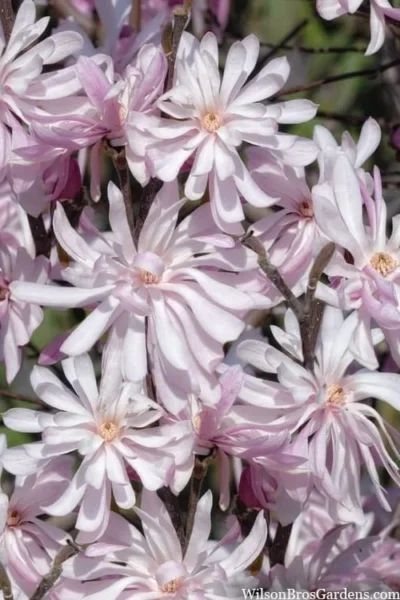

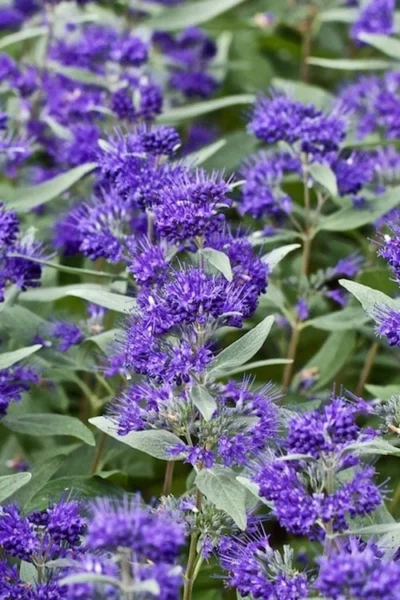

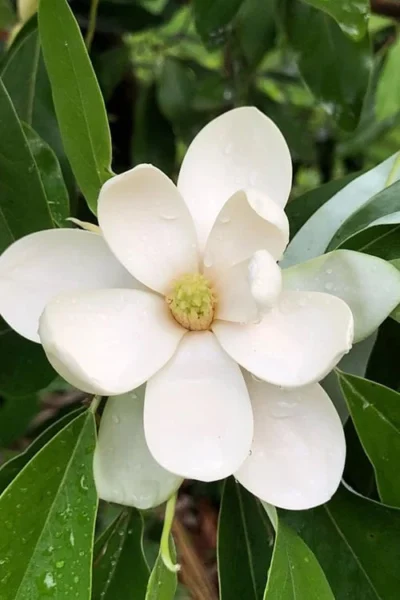

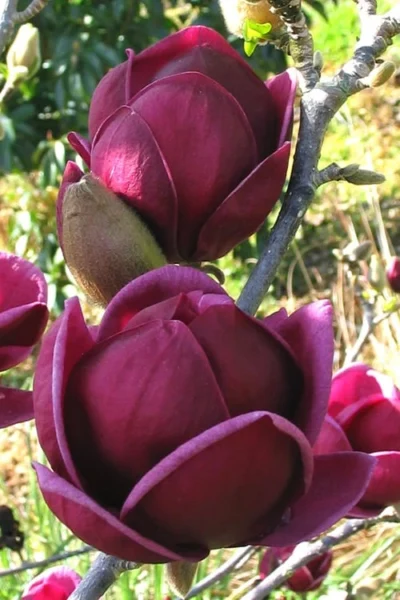

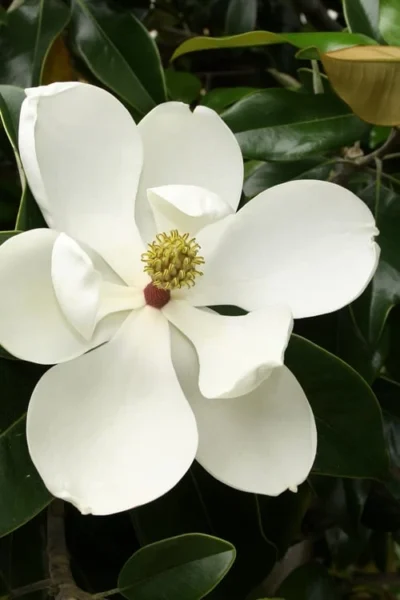



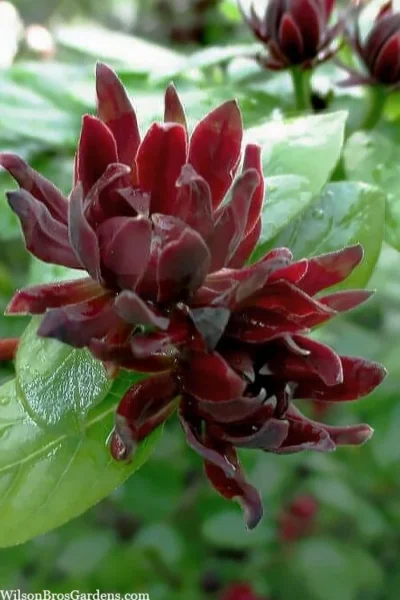

Reviews
There are no reviews yet.